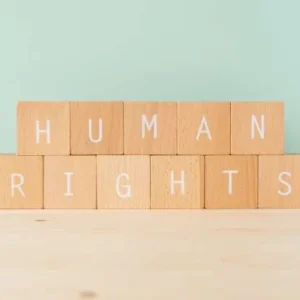Chad’s recent constitutional amendment abolishing presidential term limits represents a serious setback for the rule of law and democratic governance, Human Rights Watch said. The change enables President Mahamat Idriss Déby to remain in power indefinitely, undermining prospects for competitive elections and the rights of citizens to vote and participate politically. Experts warn that removing term limits dismantles a key safeguard against authoritarianism, entrenching one-party rule instead of promoting democratic norms.
The amendments, finalized on October 3, 2025, were fast-tracked through both chambers of parliament, largely dominated by the ruling Patriotic Salvation Movement (MPS). The reforms also extend presidential terms from five to seven years, despite opposition boycotts citing an unconstitutional process. While the government labeled the changes as “technical,” they effectively legalize indefinite rule for Déby, who assumed power following the death of his father, former President Idriss Déby Itno.
Human Rights Watch highlights that abolishing term limits removes a fundamental constitutional check designed to ensure peaceful transfers of power. This move mirrors a broader pattern of “constitutional coups” in Central Africa, where leaders amend constitutions to consolidate power, often in violation of the African Charter on Democracy, Elections and Governance. In Chad, opposition parties and civil society already face harassment, further solidifying MPS dominance.
The country has a history of violent suppression of dissent. In the 2021 elections, security forces violently dispersed opposition protests, and following Déby Itno’s death, the military, led by Mahamat Idriss Déby, seized control instead of allowing a constitutionally mandated interim leadership. Subsequent protests in 2022 demanding civilian rule were met with deadly force, and hundreds of demonstrators were imprisoned. Opposition figures, including former Prime Minister Succès Masra, have faced politically motivated arrests and long-term imprisonment.
Chad has repeatedly used constitutional changes to perpetuate power. Déby Itno previously removed term limits in 2005 and reinstated them in 2018 with extended terms, only for his son to abolish them again in 2025. Human Rights Watch calls for reinstating term limits, conducting transparent and inclusive reforms, releasing political prisoners, and guaranteeing freedom of expression and assembly. Without these measures, institutional checks like parliament, judiciary, and the press lose their effectiveness, further eroding citizens’ rights and democratic governance.






